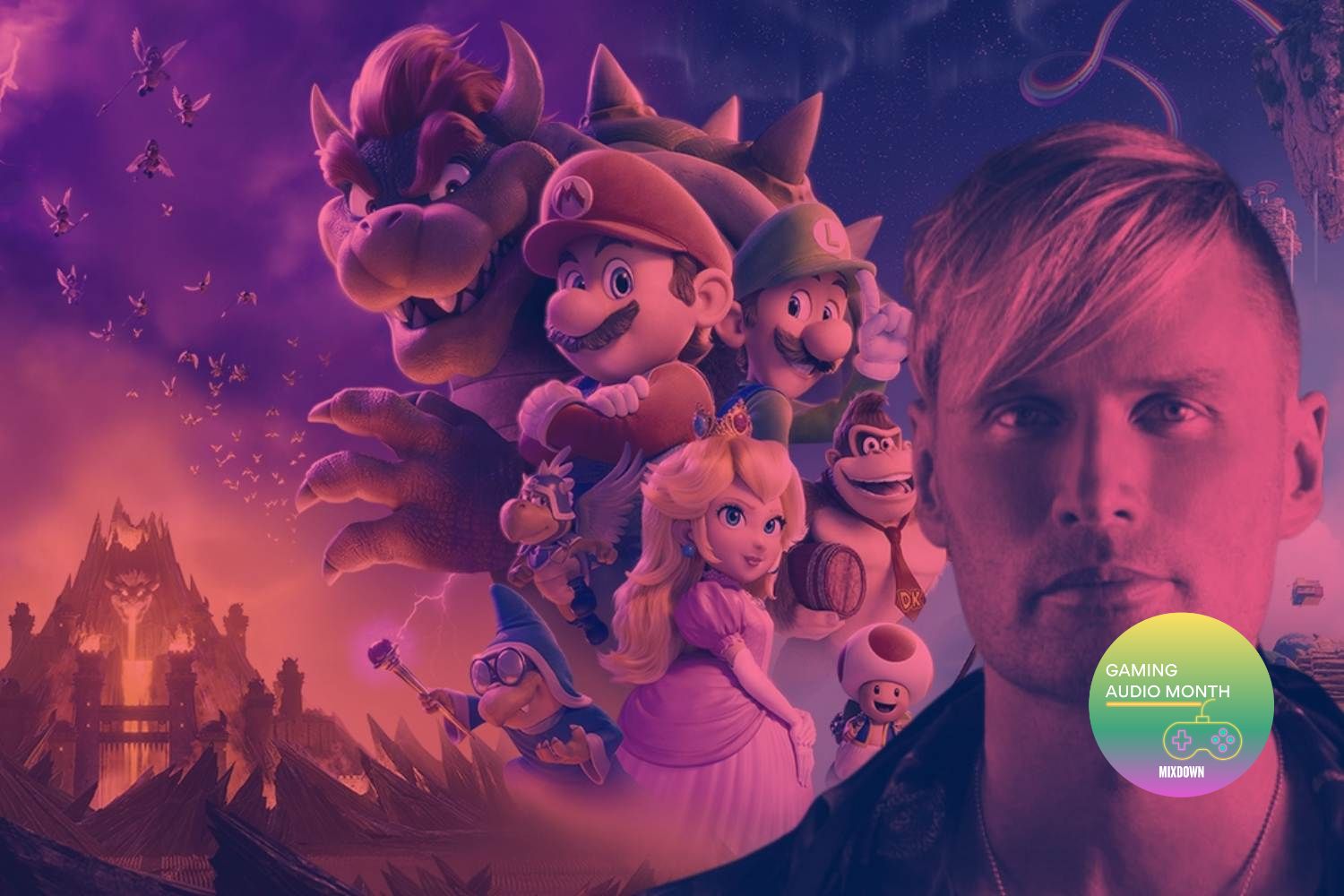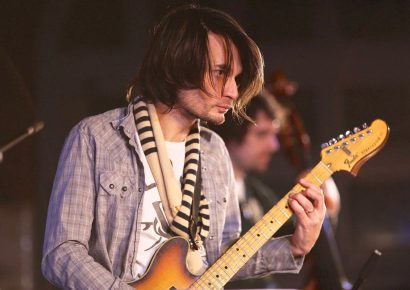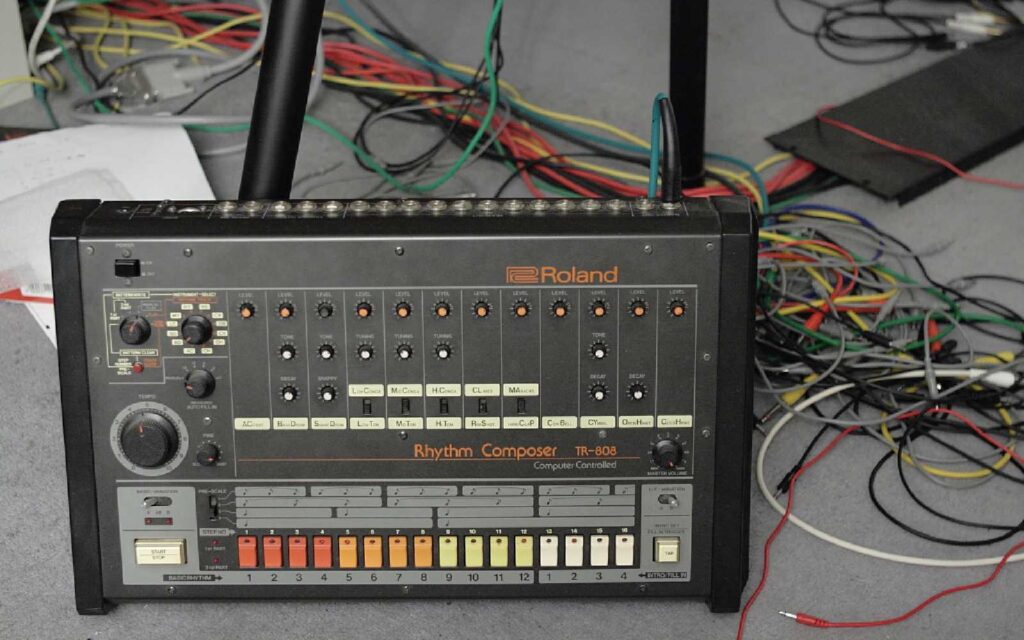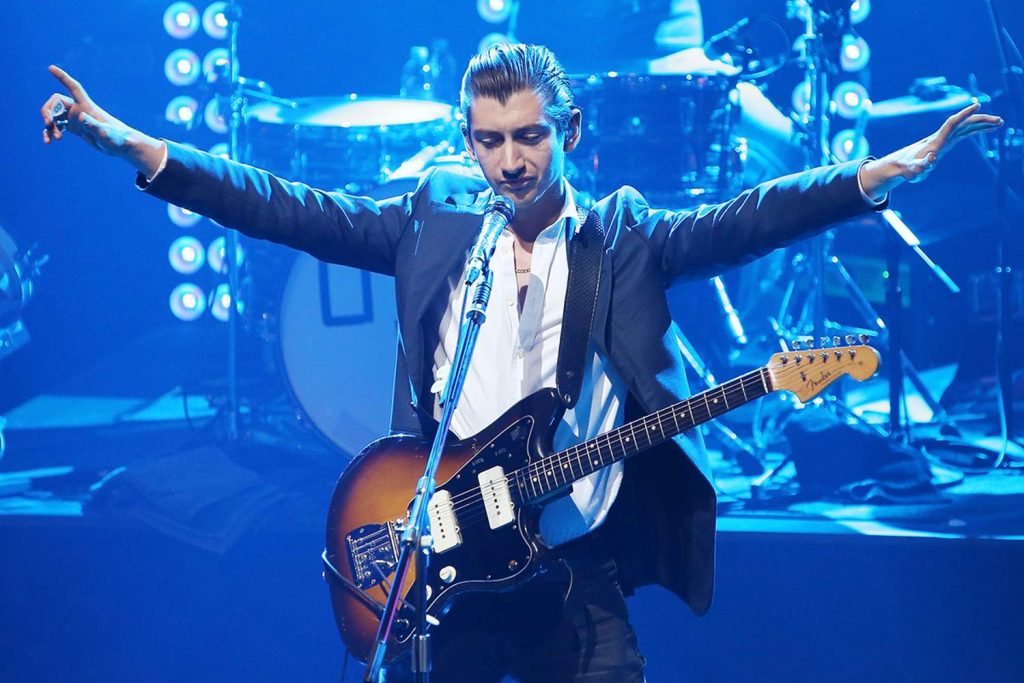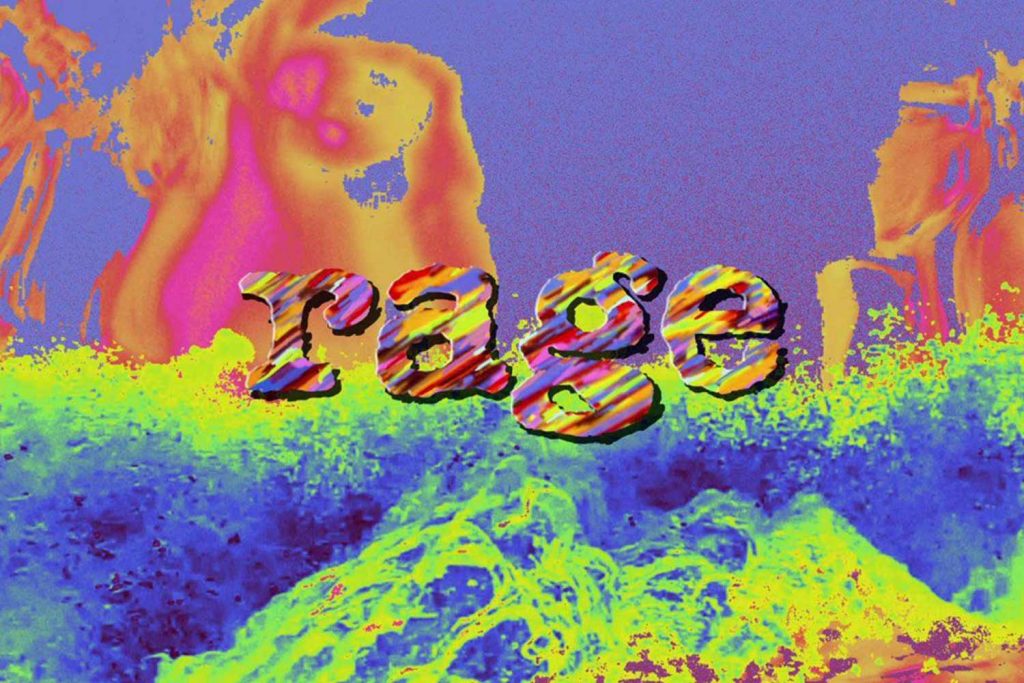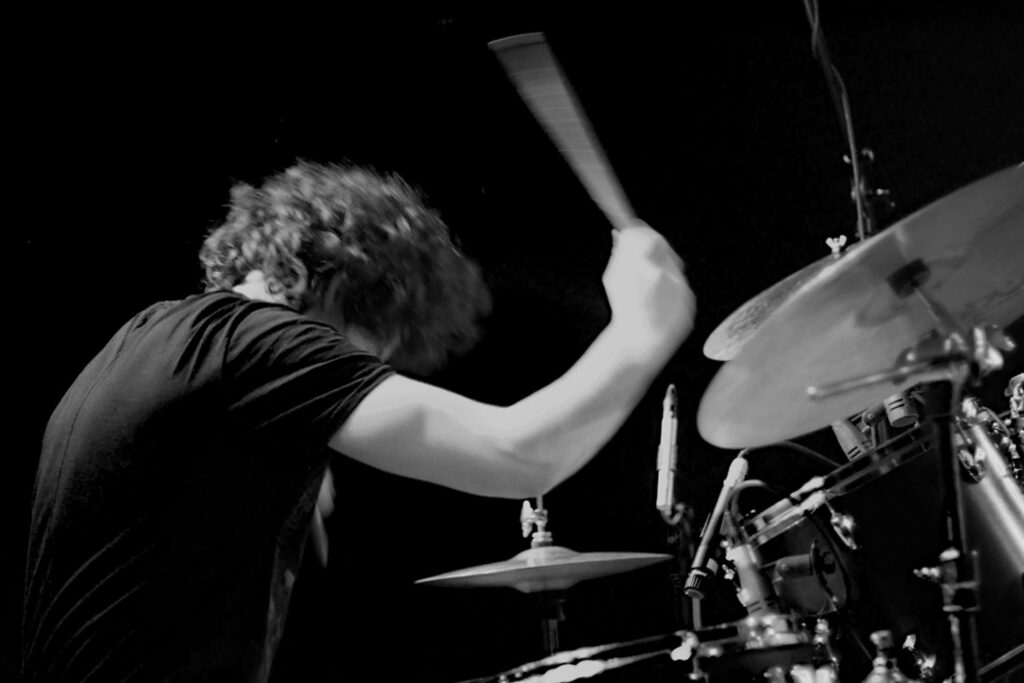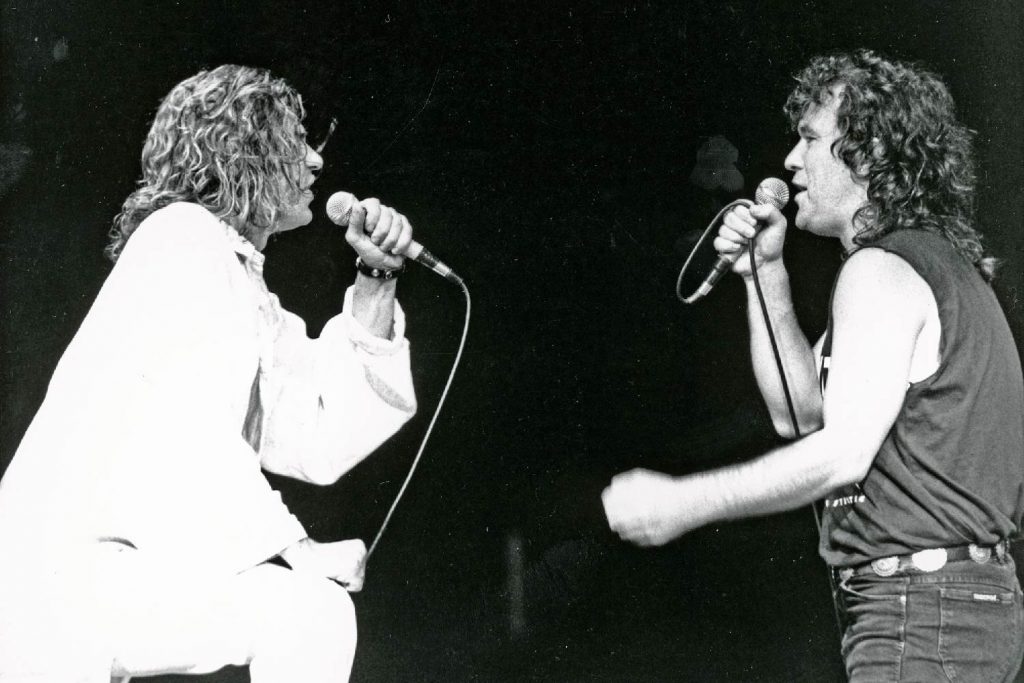In honour of our Gaming Audio Month, prolific composer Brian Tyler chats about his score for The Super Mario Bros. Movie.
In honour of Mixdown’s Gaming Audio Month, we’re remembering the time we sat down with composer, conductor, arranger, record producer, and all around mad genius Brian Tyler (whose stacked resume boasts the scores of The Fast and the Furious, Crazy Rich Asians and Scream VI, to name a few) to chat about his astounding career and the incredible opportunity he was offered to bring the 8-bit sounds of the world’s most beloved Italian plumber to grand, orchestral life.
Read up on all the latest interviews here.
Brian Tyler composer
I’m under the impression that composition for film and television is a career that one doesn’t always necessarily find themselves in by design – being a conductor and prolific multi-instrumentalist, I wonder if this is true in your case? How did you first break into the field?
Well I was always interested in film composition… I was always either in a band or recording, I’ve been a session player in every genre. I was writing pretty early on and toured at around 14-years-old doing my own concerto – that took me around the world. I actually ended up playing at the Kremlin! There were lots of great opportunities. And I was also writing music for orchestra. As a kid, growing up, I would read novels and I would basically score them, for instance, Frank Herbert’s Dune novels, I was a big fan… at twelve I had written an entire score with choir and Moroccan instruments, all sorts of world instruments, and I wrote it all down but of course I didn’t have any means to record such a thing! I was a dreamer, I idolised John Williams, and all of these film composers. Over time, by hero worship, my dream became to maybe someday do that kind of thing.
Low and behold, in 2003 Disney approached me, Greg Yaitanes the director called me and said, hey Brian, we’re making this big six hour sci-ifi movie in three parts based on Children of Dune and Dune Messiah, the books by Frank Herbert, would you be interested? And I’m thinking – am I being pranked? What ended up happening, was that I used those scores I wrote when I was 12, in those melodies for the Children of Dune score, which is a fan favourite, it’s actually how I met Steven Spielberg… because he loved that score and used it for the trailer of Indiana Jones and the Crystal Skull. Between 2003 and 2015, that score ended up being the most used music in trailers. As a nod to the dreamer that I was as a kid, always looking upward, I wanna pay it back to myself by saying, hey, dreams can come true.
Before you began working as a composer, what was your relationship to film/audiovisual media like? Have you always perceived a synesthetic connection between image and sound?
You must have been tipped off – I have synesthesia, which is extremely rare, the real form of synesthesia, rather than the general sense. Like, I literally see colours all the time when I hear sound. It’s something I didn’t know other people didn’t have, you just kind of live with it – it’s super interesting. I have used that to my advantage in a way, for instance I can conduct an orchestra, let’s say with 24 violins, and I can tell if chair 9 is playing a B natural when it’s supposed to be a B flat because the colour is wrong! It’s not always that specific, but it does point in that direction. I’m embarking on the biggest endeavour of my career – Are We Dreaming? which I’m directing, doing the music for and doing all the visuals for, editing and colour timing every shot. It’s going to be this very immersive experience, where you almost go through a portal to another dimension… it’s like, the most specific visuals put to music imaginable because I’m doing both. My synesthesia is something I convey through that experience. For instance, when I see a concert, the colours that I see emanating from the sound are almost always incongruent with what I see on stage. So, Are We Dreaming? Is the first show I’ve ever worked on where I can make all of the images congruent with my synesthesia. In a sense, it cancels it out, and I don’t see it. I get to see my show the way other people see shows. And because I’m doing my synesthesia colours, the audience gets to see my show as I see it. We’re almost swapping positions, it’s a really beautiful way to connect with the audience.
With such a wide array of projects under your belt, I’d love to know where do you typically glean inspiration from at the beginning of a project? Could you briefly walk us through your creative/production process from the commissioning of a score to its delivery?
For me, it starts with big ideas. I want to know the narrative conceit of the story, what we’re trying to say and also the emotional drive of the characters, as well as what the audience is meant to feel. So, my process… there’s lots of different kinds of angles. If it’s Crazy Rich Asians, I sat down with Jon Chu and said, why don’t we do a throwback big band romantic score, like from the 50s. Or, when I worked with Taylor Sheridan (1883, Yellowstone) I wanted to do something that wasn’t the typical music of a western, drawing more from where early American music came from, which was across the ocean – people fleeing to America with a dream, the instruments and musicians with humble beginnings who would bring their fiddles, that’s where you get that American sound that’s actually a quasi European imported sound, along with blues and influences from Africa and Asia as well.
So, the first thing I always do is read the story or see the movie, and I do not go to put it down at first, I just sit down and I write music in my head. It can be anything, your imagination has no bounds, in my head I can hear the complete music, and then I usually sit at the piano or the guitar or a cello or a harp or a synth or the drums… and I start playing and put pencil to paper. Typically what I end up doing before I score anything, specifically scene by scene I want to have the whole background of what the music is like, I need to have a built in history of the characters and the music. I want to know, for instance, if the first time you see a character in a movie you hear a small portion of what would be the main theme. I don’t want to just write that scene, and only write a portion of a melody. I want to have something that exists in full, a reality in the background. I end up writing a 15-20 minute musical suite or overture that includes all the themes and moods within it, that’s going to be the building block of the score. Probably for the last 70 movies, the suite that I wrote ended up being exactly the theme of the movie.
Could you talk a little bit about your typical workflow/recording set up? Does this vary a great deal from project to project?
I sit down at the piano and do things old school, but I also record a lot. I’m at the studio playing a lot of instruments, maybe 30, sometimes just a few… I’m in the studio right now, I have a glockenspiel, the vibraphone, the drums, an upright piano, here’s a bouzouki, here’s a Paul Reed Smith Guitar, a spanish guitar… It goes on forever. And I sing, on all my scores I end up layering vocals myself, sometimes fifteen or twenty of me to record a choir, and I’m always playing solos, like the piano solos, or the guitars, because its a personal touch and also faster for me to just sit down and play it because I’m the one who wrote it. And then for most movies, I’ll write an entire orchestral portion of the score, which is violins, violas, cellos, bases, french horns, flutes, clarinets, oboes, trombones, harp, percussion… some composers don’t conduct, but I do conduct my own scores, which I find to be very direct, I don’t have to translate or have a rosetta stone between me and a conductor who doesn’t really know the movie or the music.
I also mix all of my own scores, I’m heavy into producing… I think the way something sounds, the way something is moulded and sonically comes across can be so emotionally engaging. Right now I’m doing Fast and Furious, and there’s a big orchestra and choirs, but there’s moments that are 808’s and a hip hop beat going into drum and bass… whatever it might be, I want to do it myself.
The Super Mario Bros. Movie
Having been lucky enough to listen to an advance copy of the score you’ve most recently composed for The Super Mario Bros. Movie, I was delighted by how playful and self-referential, yet genuinely epic and cinematic it is. Can you talk a bit about the creative process you underwent in order to translate the nostalgia-inducing 8-bit motifs and effects of the Super Mario universe into a grand and soaring feature film score?
I’m a huge Mario fan, going back even to Donkey Kong, that’s my jam! I know those themes from N64, Mario Kart etc. So it was really cool to be able to work with Koji Kondo, the original composer, just in terms of picking his brain, because I wanted to really use those original themes, but bring them to life. I wanted it to be like the greater world the 8-bit created in my mind when I played the games. This movie kind of does that, it’s delivering what it was like in our minds playing these games as kids in reality… I used a ton of different themes from the game, from themes everyone knows to really obscure easter eggs. But the drive of the score is also my new themes for Mario, Bowser, Princess Peach and more, for those themes, I wanted to write something that felt like it was built-in nostalgia, something that very quickly feels comfortable, like home. So the number one focus, which always is in my writing process, was melody.
As a long-time Nintendo lover, I was extremely charmed by your score’s details – from the heavenly choral renditions of the iconic Super Mario theme, to specific sound effects that appear to have been recreated with traditional instrumentation. For the Mario superfans out there – are there any particular moments to look out for that you’d like to highlight?
I mean – Rainbow bridge and going through the portal, Toad, the Mushroom Kingdom, all of the Princess Peach stuff, there’s all of these references. Where do I even start? I’d like to highlight the whole thing, how about that!
Was there an arrangement within the film’s score that you found particularly challenging to put together? Or any that were surprisingly inspiring to work on? Did you personally have much of a relationship to/awareness of the original Mario game scores before embarking on this project?
All of it was, and all of it wasn’t. It was a challenge in terms of wanting to make it as great as possible, because this music is a part of my soul. It was a complex score, it was so frenetic – it was like my E.T. The movie is like a musical. The orchestra’s going, there’s a choir, I’m using 8-bit instruments, I’m also using live… back and forth too. It was an incredible experience.
To wrap things up – I’d love to know what’s next for you! What do you have coming up over the next couple of months?
Scream just came out last week, I’ve got my Awakening soundtrack out next week, which is my show in Las Vegas that plays twice a night every day. It’s a live cast, with illusions, it’s a musical, it’s the most assertive, technologically advanced, crazy, most incredible show ever done in Vegas I gotta say. And it’s one of the most popular, it just opened in November. They built a whole theatre for it… the music is everything from hip hop, to choir, to world music… gut wrenching emotion… It is so cool.
Then, of course I have Super Mario Bros coming out, and then, Fast 10, which is unbelievable. The main drive though, is going to be getting Are We Dreaming? out into the world, which isn’t out yet… It is really my soul.
